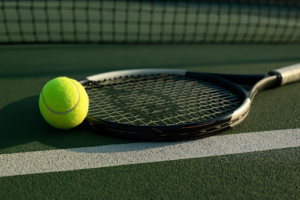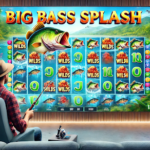Tennis is not only about strength. It’s about accuracy, timing, and control under pressure. Players must stay focused, react quickly, and adjust their strategy in seconds. Just like on platforms such as http://katanaspin.org.uk/ every decision matters. One small mistake can shift the momentum. In tennis, staying sharp and thinking fast often makes the difference between winning and losing.
What Makes Tennis Unique
Tennis is a solo battle. It’s just you and your opponent. There’s no coach on the court. No one to help you decide. Every choice—where to serve, when to go for a drop shot—is yours alone.
The court becomes a mind game. Players study each other. They predict moves. They set traps. All while managing their own emotions and physical fatigue.
The surface also matters. Clay, grass, and hard courts change how the ball moves. You must adjust your strategy. On clay, points are longer. You need patience. On grass, the game is faster. You need quicker reactions. Good players adapt quickly.
Physical Fitness Is Just One Part
You need speed. You need strength. But those alone don’t win matches. A strong serve means little if your mind freezes at match point. Physical training builds the base. Mental training wins the match.
Top players know this. That’s why they practise visualisation, breathing control, and mindfulness. They train the brain as much as the body.
Tennis is a full-body sport. Legs move fast. Arms swing hard. The core stays tight. Stamina plays a huge role. Long rallies test your endurance. Tired legs mean slow reactions. You must be fit to last.
Focus Under Pressure
Matches can last hours. One set can turn on a single point. Staying locked in mentally is essential.
Here’s how players keep focused:
- Routine: Same number of bounces before every serve.
- Breathing: Deep breaths after each point.
- Positive talk: Encouraging words to themselves between shots.
These small habits protect against panic. They help refocus after mistakes.
Crowds can be loud. Umpires can make mistakes. Weather can shift. Focus helps block out distractions. The best players stay in the zone no matter what.
Fast Decisions in Tight Moments
Tennis is fast. You have seconds to react. The ball comes at you at over 100mph. You can’t overthink. You trust your training.
Decision-making speed is critical. Good players:
- Read their opponent’s body position
- Adjust strategy point by point
- Know when to go aggressive or play safe
Much like in reaction-based challenges, the right move must be automatic. There’s no time to analyse deeply.
Tactical awareness is vital. If you see your opponent leaning left, you hit right. If they stand far back, you play a drop shot. Every second counts.
Managing Emotions
Anger. Frustration. Fear. All are normal. But if you don’t control them, they take over.
That’s why many tennis players work with sports psychologists. They learn to:
- Accept mistakes
- Stay present
- Break negative thought loops
After all, losing a single point shouldn’t cost you the match. The ability to reset quickly is a key skill.
Even top players break down. But they bounce back. That’s the difference. You can’t let one bad call ruin your mindset.
The Role of Strategy
Tennis is also tactical. You adapt to every opponent. What works against one doesn’t work against another.
Key strategies include:
- Targeting the weaker side (usually the backhand)
- Mixing shot speeds and spins
- Controlling the centre of the court
This mix of physical skill and strategic play makes tennis unique.
You might play deep balls to push your opponent back. Then finish with a volley. Or serve wide to open the court. Then hit down the line. Smart tennis wins matches.
Practising Like a Pro
Amateur players often hit balls for hours. But quality matters more than quantity.
To train smart:
- Use drills that simulate match pressure
- Focus on one skill at a time
- Track progress with video or notes
Mental work is just as important. Practice situations like being 30-40 down. Visualise break points. Build confidence before stepping on court.
Professional players split sessions into parts. One day fitness. One day technique. One day mental prep. They build each area slowly.
Tennis and Real Life
Tennis teaches resilience. You fall behind, you fight back. You stay patient, even when things go wrong. These lessons apply far beyond the court.
The sport builds independence. You learn to make decisions. You take full responsibility for outcomes. Wins and losses are yours alone.
Like in any skill-based challenge, progress comes from consistency. Not luck. Not shortcuts.
Time management, discipline, and self-motivation grow naturally. Tennis prepares you for work, school, and everyday life.
Final Thoughts
Tennis is about balance. Between strength and strategy. Between emotion and control. Between attack and defence. It’s a test of body and mind.
Whether you’re new to the sport or chasing improvement, remember: The key isn’t hitting harder. It’s playing smarter.
Stay sharp. Stay calm. Trust the process. And enjoy the battle—one point at a time.







